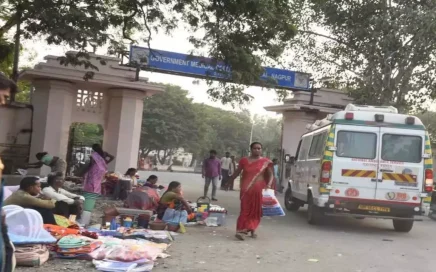
Mumbai/Nagpur: Earlier this week, the Maharashtra State Cabinet approved financial assistance for significant infrastructure projects, including the Thane-Borivli tunnel and the Orange Gate-Marine Drive tunnel, despite strong objections from the Finance Department regarding the State’s strained fiscal condition, a media report revealed.
Pre-poll freebies increase financial burden”
The Finance Department highlighted that pre-election schemes, notably the Ladki Bahin Yojana, have placed a substantial burden on the State’s budget. The scheme alone requires Rs 46,000 crore annually, contributing to the state’s worsening fiscal deficit, which has nearly doubled to Rs 2 lakh crore for the 2024-25 financial year. These freebies, introduced by the Mahayuti Government in its pre-election budget, were among the primary reasons for the state’s massive financial burden, according to the department, the report added.
Fiscal deficit beyond Constitutional Limits
According to the the report, the fiscal deficit has exceeded 3% of the Gross State Domestic Product (GSDP), a limit set under Article 293 (3) of the Constitution. The borrowing limit for states is restricted to this 3% cap, but the state’s current deficit has surpassed this threshold, making it difficult for the government to take on additional financial liabilities. “Given the state’s limited resources and rising debt, approving further projects could deepen the financial strain,” the Finance Department warned.
Despite these warnings, the State Cabinet went ahead with several infrastructure approvals: An interest-free subordinate loan of Rs 1,354 crore for the Orange Gate-Marine Drive tunnel. A similar loan of Rs 2,417 crore for the Thane-Borivli tunnel.
In both cases, the Finance Department had advised against the funding due to the state’s precarious financial position. It also cautioned that for projects like the Thane Circular Metro Rail, the Rs 4,514 crore loan must not become a liability for the state.
The report further pointed out that the Finance Department revealed that the fiscal deficit initially estimated at Rs 1.1 lakh crore in the July 2024 budget has now soared to Rs 2 lakh crore due to supplementary budgetary demands totalling around Rs 95,000 crore. This expanded deficit has placed the state’s ability to meet its financial obligations in jeopardy, with the government unable to cover the shortfall through internal revenue and tax collections.
The department also emphasized that if large loans were taken for these projects, they would have to be repaid by agencies like the Mumbai Metropolitan Region Development Authority (MMRDA) from their own revenue streams, rather than relying on state funds.
Despite these significant concerns, the State Government’s decision to proceed with these infrastructure projects suggests a challenging fiscal year ahead for Maharashtra, as it continues to balance developmental aspirations with financial sustainability.

























